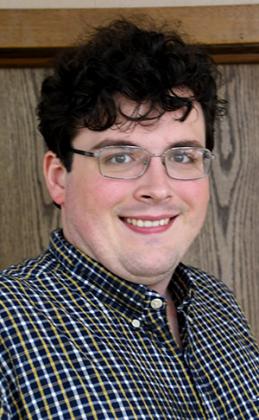The president can say that the COVID-19 pandemic is over, but the effects will stay with us.
The WHO and CDC are less enthusiastic than Joe Biden. People are still contracting and dying from the disease, about 54,000 cases and 347 death per day in the United States, according to the CDC on Friday. Over 94 million were infected in total and over 1 million died, more dead than any war fought by Americans.
The dead leave their holes in our lives and the effects of COVID-19 for the survivors are still being understood, though the lung and mental damage will probably still be with us for decades to come.
Yet when I think about those, like myself, who have never contracted the virus or known personally someone with a severe case, I think the affects will be on our souls.
I noticed the sickness of spirit when it first hit while I was in college, or enjoying being away from the pressure of college during the spring break when the shutdown began. I did my part with the confused guidelines and thought by end of the year, we’d be through it.
Even if I did not agree with all the country’s leadership, I thought that in a time of crisis, Americans could come together to not let our fellow citizens die from an invisible enemy, even in an election year, that the event would supercede divides when anyone could be hit.
The problem was COVID-19 was not the Black Death. No villages or towns were wiped out like the hand of God had swept humanity aside. If you were healthy and able-bodied, you might have a good chance to live even if you put others in danger.
It didn’t help that it quickly turned into THE issue of the 2020 presidential campaign, the contradictory, slow response by almost every bureaucratic agency on the planet. People got mad.
What was surprising was how quickly the backlash came. Not even a month had passed before the first protests against the lockdown were on the streets, bare faces to the wind, more people dying.
Adding to the fire was the out-of-touch support and payout to the individuals who lost livelihoods in the pandemic. Yeah, I lost my job, but hey I got a check of more than $1,000! Twice! That’s like less then 5 percent of what I made in a year! Loans went out to big businesses to cut out more people from the workforce, while small, personally run business struggled to survive.
When the isolation turned from months into years, trapped at home, I think everyone went a little mad. We only had the people in our screens and fellow prisoners to keep us company and bad news to confront our minds with anger and outrage, justified or not. At every injustice or selfish act, most could only move our fingers to help.
I fell back into a deep depression, one I think I’m barely out of now. I felt helpless. I felt people were going insane, and was sure that they thought the same of me.
My job as Uber Eats delivery driver at the time, let me witness one woman’s meltdown at an IHOP about not being allowed to eat in public. Even if it was irrational, I sympathized with that irrationality.
Another ray of hope came with the vaccine, pushed forward by both liberal elites and their enemy, the former president. Surely no one would have a problem with it. But even though it came as breakthrough from technology decades in the making and most had little to no side effects, many came out to rail against the vaccine and there was a large market for the snake oil salesmen of the world to pray on fear.
Eventually, COVID-19 became like a man nodding off to sleep: people would relax in using the guidelines and numbers would go up. Relax and up, relax and up, relax and up. Each wave of infection and death becoming that much easier to ignore or justify. It’s just the old or disabled in most danger, who cares seemed to be a prevalent feeling among many even in my family.
Now here we are, President Joe Biden says the pandemic is over. The history books might agree with him, too. But what COVID-19 did to us, that will never be gone. Events pass us by, but their grasp on our imaginations does not.
No man can whip off the shroud of poison the event seeped into our vision and expect perfect 20/20 vision. No ticker-tape parade or fireworks festival can accompany the defeat of this enemy. There is only the masses silent realization that the world is not the same as it was.
I wonder what the next crisis -- climate disaster, famine, war or disease -- will do to us. Will we even survive the changes?
JACOB COURTNEY can be reached at features@hamilton.net
COVID-19 affected us all in the end
Image
Body





